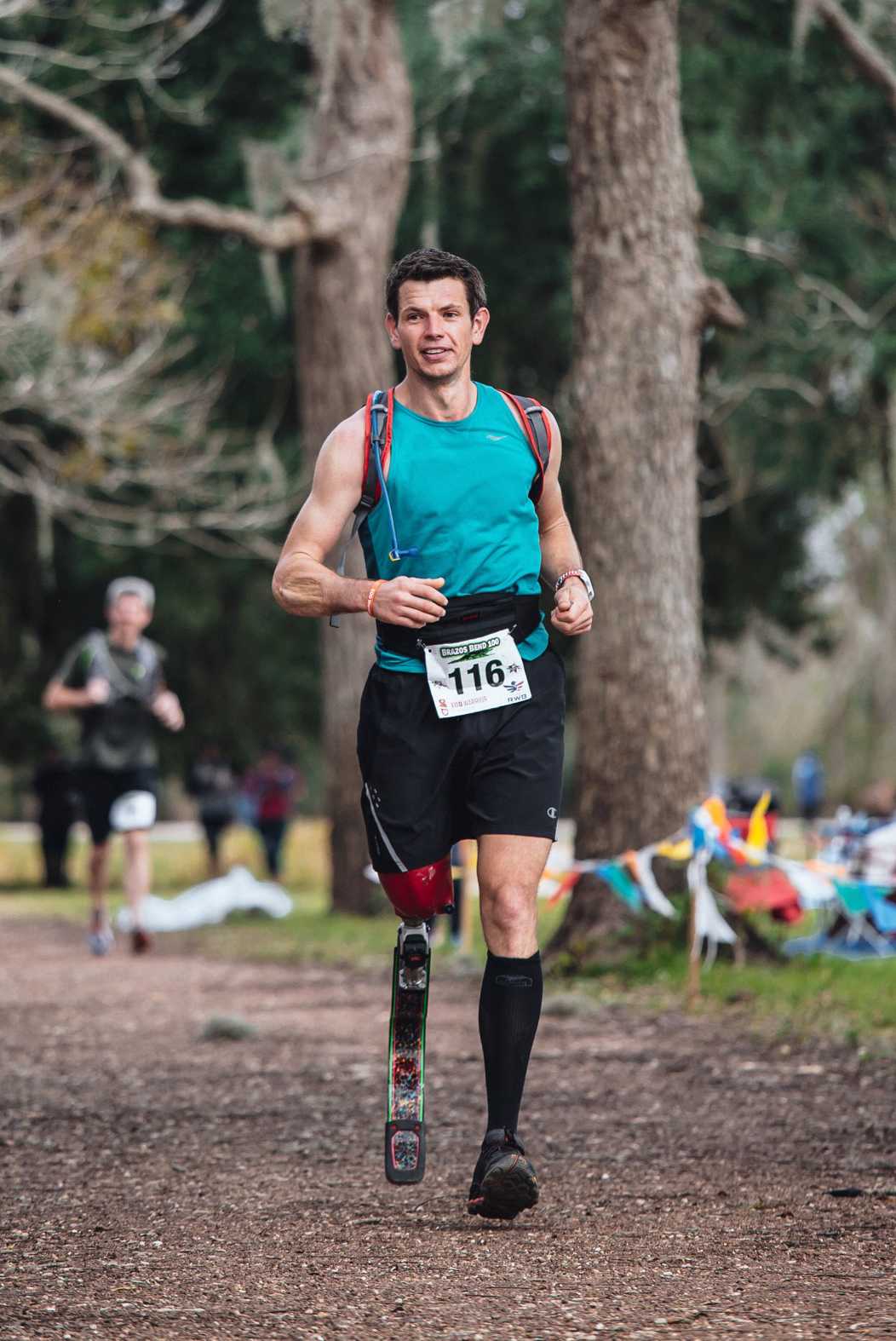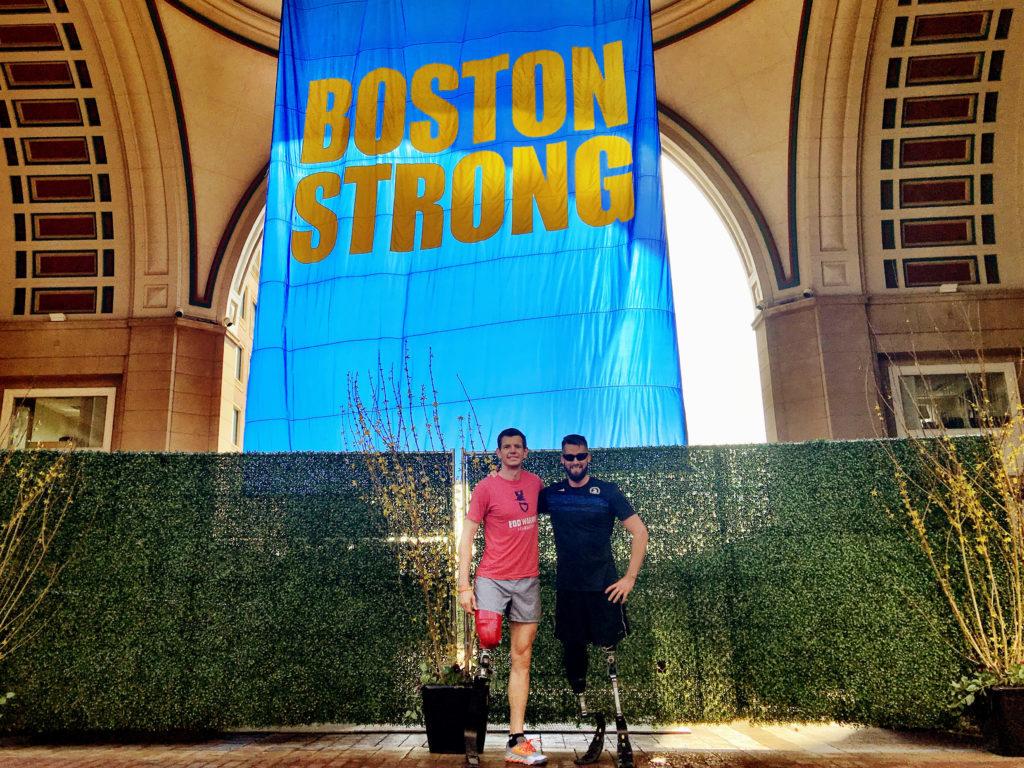First-year graduate student and U.S. Air Force veteran Adam Popp ran the Boston Marathon alongside tens of thousands of runners last week. But for Popp, the journey to the finish line wasn’t so simple.
Eight years ago, doctors told Popp, a rehabilitation counseling major, that he couldn’t run anymore because of complications from his amputated right leg.
In December 2007, Popp, a member of an Air Force unit that disarmed improvised explosive devices, was on patrol in Eastern Afghanistan when an IED detonated before he could disable it, severely wounding him and forcing his right leg to be amputated above the knee.

Courtesy by Adam Popp
Popp returned to the United States to recover at Walter Reed Medical Center, a military hospital in Maryland, where he stayed for more than a year. Doctors told him to avoid high-impact activities after he developed a hip condition resulting from the surgery.
But in 2015, Popp got his first prosthetic running leg to prepare for a Ski to Sea race, a multi-sport charity event in Washington state, and he started to run again.
“To find out that I still have that in me, that I never had it taken away from me, that I shouldn’t take that for granted, that’s why I continue to do it,” he said. “That’s something that I can’t give up on.”
He started small, running in circles at parking lots to rebuild strength. Popp said that after he avoided that kind of physical activity for eight years, getting back in shape was brutal.
“I went from sitting on the couch not running or doing any cardio to trying to run,” Popp said. “After that I figured out that I could do this activity and I just started to train quite a bit.”
Popp started training to run a half marathon for Air Force veterans later in 2015 and then set his sights even higher. Seven months after running for the first time on his prosthetic leg, Popp ran his first marathon in Virginia, finishing in 3 hours and 44 minutes, an 8 minute 30-second mile pace.
“I ran that half marathon faster with my prosthetic leg than I ran when I had two legs,” Popp said.
Popp ran several more marathons and other races since, including the famed Boston Marathon on April 17. But despite finishing second among mobility impaired runners, he wasn’t satisfied with his finishing time of 4 hours and 10 minutes.
Running didn’t interest Popp until after his tour with the Air Force. Although he wasn’t always a long distance runner, he now runs four to five miles every day.
“It’s an escape for me,” Popp said. “It’s my meditation. I let all my thoughts go.”
Popp came to GW last fall to start his program in rehabilitation counseling, a topic he said he wouldn’t have considered studying if it wasn’t for his running career.
“Setting these goals and waking up every day to try to be a better person has spilled into other areas of my life,” he said. “That’s why I do it everyday.”
Yannick Baptiste, the president of the student group GW Veterans, said he admired Popp’s fire and optimism, not only in his running.
Popp began helping other military veterans while still recovering at Walter Reed. Now he volunteers for veterans groups like Team Red White and Blue, the EOD Warrior Foundation and the Air Force Wounded Warrior program by coordinating and organizing teams for different races and taking veterans on recreational rehabilitation activities.
“His heart and soul is in it,” Baptiste said. “Anytime he comes around, he definitely brightens the room and brings positivity despite the odds.”
Popp was awarded the Pat Tillman Scholarship in 2016, a scholarship for veterans and their spouses who show strong academics, a record of community service and leadership potential.
Popp said he hopes to run the Boston Marathon again someday, but he has already shifted his focus to his next goal: the Paratriathlon National Championships. He qualified in March for the national competition, set to be held in Wisconsin this June.
Popp said watching the success of other athletes who were wounded in combat inspires him in his journey, but that isn’t the reason why he runs today.
“It really prompted me to get where I am today,” he said. “I hope just leading by example that I can do that for others.”





